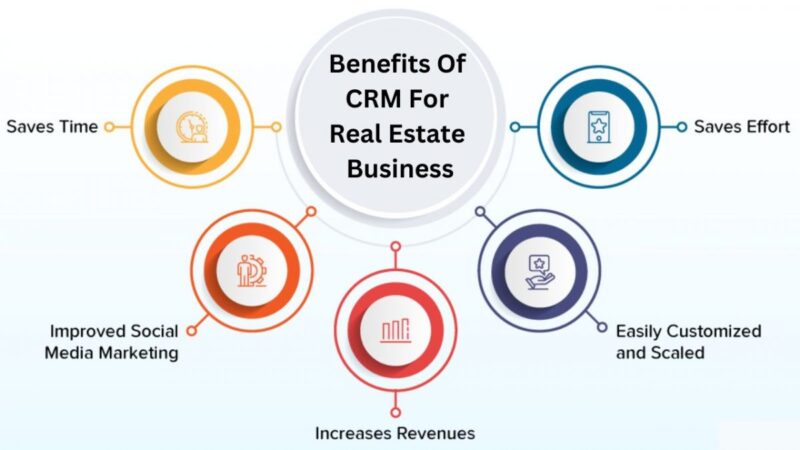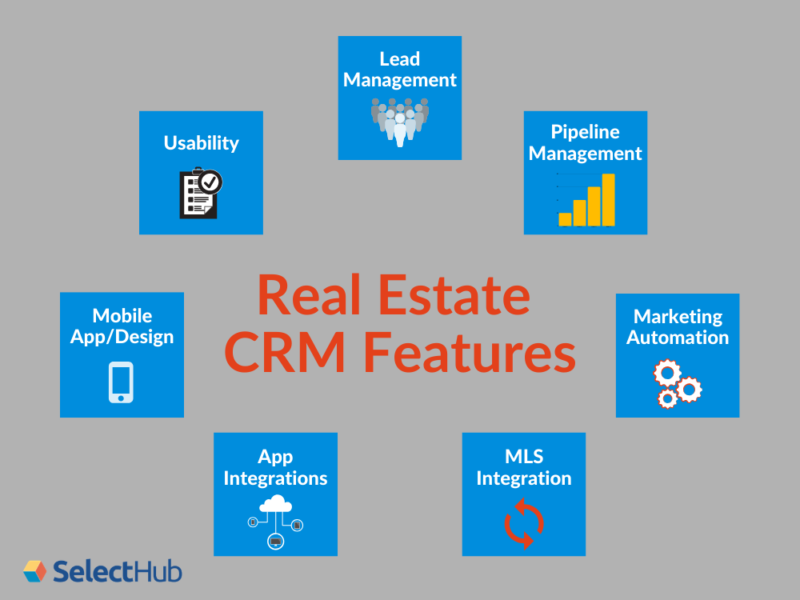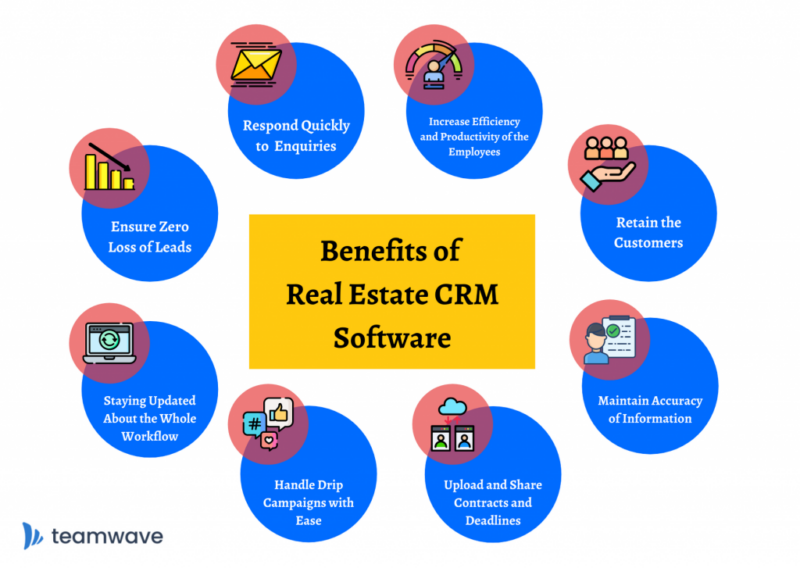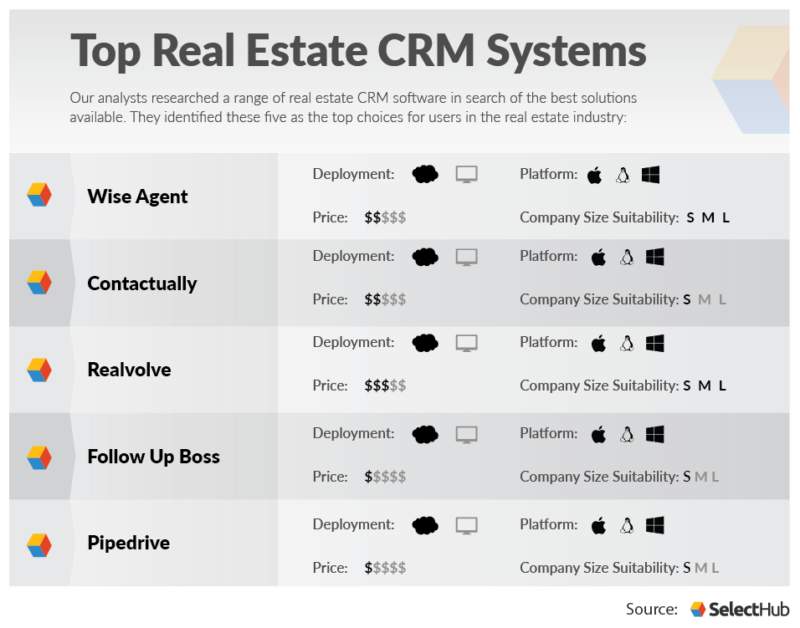Are you a real estate professional looking to take your business to new heights? In today’s competitive market, it’s crucial to have the right tools and strategies in place. One such tool that can revolutionize your operations is a real estate CRM. But what exactly is a real estate CRM, and why is it so important?
Mục lục
- 1. Importance of Using a Real Estate CRM
- 2. How a Real Estate CRM Benefits Professionals
- 3. Key Features to Consider When Choosing a Real Estate CRM
- 4. Top 5 Real Estate CRM Platforms in 2021
- 5. Factors to Consider When Selecting the Best Real Estate CRM for Your Business
- 6. Case Studies: Success Stories of Real Estate Professionals Using CRM
- 7. Conclusion

A real estate CRM, or Customer Relationship Management system, is a software designed specifically for professionals in the real estate industry. It serves as a centralized hub to manage and organize your contacts, leads, and transactions. By leveraging the power of automation and analytics, a CRM can streamline your business processes, enhance client relationships, and ultimately boost your bottom line.
Importance of Using a Real Estate CRM
Now, you might be wondering, why do I need a real estate CRM? The answer lies in the multitude of benefits it offers. Firstly, a CRM allows you to efficiently manage your contacts. Gone are the days of scattered sticky notes and messy spreadsheets. With a CRM, you can effortlessly store and access all your client information, including contact details, communication history, and preferences. This ensures that no lead falls through the cracks and that you can provide personalized service to each client.
Secondly, a real estate CRM enables effective lead generation and tracking. By integrating lead capture forms on your website or landing pages, you can automatically collect valuable prospect information and nurture those leads through targeted marketing campaigns. With the ability to track lead activity, you can prioritize your efforts and focus on the most promising opportunities, saving you time and energy.
How a Real Estate CRM Benefits Professionals
The benefits of a real estate CRM extend beyond organization and lead management. It empowers you to deliver exceptional customer service by automating routine tasks such as follow-ups, reminders, and appointment scheduling. This frees up your time, allowing you to dedicate more energy to building relationships and closing deals. Additionally, a CRM provides valuable insights through analytics and reporting, enabling you to make data-driven decisions and identify areas for improvement in your business strategies.
In the next section, we will dive deeper into the key features you should consider when choosing the best real estate crm for your needs. From contact management capabilities to mobile accessibility, we will explore the essential functionalities that can take your real estate business to new heights. So, let’s embark on this journey together and discover how the right CRM can revolutionize your real estate operations. Stay tuned!
Continue to Key Features to Consider When Choosing a Real Estate CRM
Key Features to Consider When Choosing a Real Estate CRM

When it comes to selecting the best real estate CRM for your business, there are several key features you should consider. These features can make all the difference in streamlining your operations and maximizing your productivity. Let’s explore each of these features in detail:
Contact Management Capabilities
A robust real estate CRM should excel in contact management. Look for features that allow you to store and organize all your client information in one place. This includes not only basic details like names and contact numbers but also additional information such as property preferences, transaction history, and communication records. The ability to segment and categorize your contacts can also be invaluable for targeted marketing campaigns and personalized communication.
Lead Generation and Tracking
An effective real estate CRM should have built-in lead generation and tracking capabilities. Look for features that allow you to capture leads from various sources, such as your website, social media channels, or landing pages. The CRM should also provide tools to nurture and track these leads through automated follow-ups, personalized emails, and task reminders. The ability to assign leads to specific team members and track their progress ensures that no opportunity is missed.
Integration with Other Tools and Platforms
To streamline your workflow, it’s essential to choose a real estate CRM that integrates seamlessly with other tools and platforms you use. This includes email marketing software, calendar applications, document management systems, and even social media platforms. Integration eliminates the need for manual data entry and allows for a more efficient and synchronized workflow.
Customization Options
Every real estate business is unique, and your CRM should reflect that. Look for a CRM that offers customization options, allowing you to tailor the system to your specific needs. This may include custom fields, workflows, and templates. The ability to adapt the CRM to your business processes ensures that it aligns perfectly with your operations and maximizes your efficiency.
Mobile Accessibility
In today’s fast-paced world, having access to your CRM on the go is crucial. Look for a real estate CRM that offers mobile accessibility through dedicated mobile apps or responsive web interfaces. This allows you to access your client information, manage tasks, and track leads from anywhere, anytime, ensuring you never miss a beat.
Analytics and Reporting
Data is power, and a real estate CRM should provide you with valuable insights through robust analytics and reporting features. Look for a CRM that offers detailed reports on key metrics such as lead conversion rates, sales performance, and client engagement. The ability to analyze these metrics helps you make informed decisions, identify areas for improvement, and optimize your business strategies.
In the next section, we will explore the top 5 real estate CRM platforms in 2021. We will dive into their features, pros, and cons, helping you make an informed choice for your business. So, let’s continue this journey and discover the best CRM solutions for your real estate endeavors.
Continue to Top 5 Real Estate CRM Platforms in 2021
Top 5 Real Estate CRM Platforms in 2021

When it comes to choosing the best real estate CRM platform for your business, the options can be overwhelming. To simplify your decision-making process, we have compiled a list of the top 5 real estate CRM platforms in 2021. Let’s take a closer look at each of these platforms, along with their key features, pros, and cons.
CRM A: Features, Pros, and Cons
- Key Features:
- Advanced contact management capabilities
- Robust lead generation and tracking tools
- Seamless integration with popular email marketing platforms
- Customizable workflows and automation features
- Real-time analytics and reporting
- Pros:
- Intuitive user interface for easy navigation
- Excellent customer support and training resources
- Scalable for businesses of all sizes
- Mobile app for on-the-go access
- Extensive customization options
- Cons:
- Higher pricing compared to some alternatives
- Limited third-party integrations
- Steeper learning curve for beginners
CRM B: Features, Pros, and Cons
- Key Features:
- Comprehensive contact management system
- Powerful lead generation and nurturing tools
- Integration with popular CRMs and marketing platforms
- Workflow automation and task management
- Detailed analytics and reporting
- Pros:
- User-friendly interface with easy setup
- Affordable pricing plans for different business needs
- Robust email marketing capabilities
- Extensive third-party integrations
- Excellent customer support
- Cons:
- Mobile app lacks some advanced features
- Limited customization options
- Some users find the reporting features less intuitive
CRM C: Features, Pros, and Cons
- Key Features:
- Comprehensive contact and lead management
- Automated marketing campaigns and follow-ups
- Integration with popular email and marketing tools
- Customizable dashboards and reporting
- Task and transaction management
- Pros:
- Simple and intuitive interface
- Affordable pricing plans for individuals and teams
- Extensive customization options
- Excellent customer support
- Mobile app for on-the-go access
- Cons:
- Limited third-party integrations
- Steeper learning curve for beginners
- Advanced features may require additional configuration
CRM D: Features, Pros, and Cons
- Key Features:
- Robust contact and lead management system
- Automated follow-ups and reminders
- Integration with popular email and marketing platforms
- Customizable workflows and automation rules
- Comprehensive reporting and analytics
- Pros:
- User-friendly interface with easy setup
- Affordable pricing plans for individuals and teams
- Mobile app for seamless on-the-go access
- Excellent customer support and training resources
- Extensive customization options
- Cons:
- Limited integration options with other software
- Lack of advanced project management features
- Some users find the interface outdated
CRM E: Features, Pros, and Cons
- Key Features:
- Advanced contact and lead management capabilities
- Automated marketing campaigns and drip emails
- Integration with popular CRMs and marketing tools
- Customizable dashboards and reporting
- Task and transaction management
- Pros:
- Intuitive user interface with easy navigation
- Affordable pricing plans for different business sizes
- Extensive customization options
- Excellent customer support
- Mobile app for on-the-go access
- Cons:
- Limited third-party integrations
- Steeper learning curve for beginners
- Some users find the reporting features less robust
Now that you have an overview of the top 5 real estate CRM platforms in 2021, it’s time to delve deeper into the factors you should consider when selecting the best CRM for your business. Join us in the next section as we explore these essential considerations to help you make an informed decision.
Continue to Factors to Consider When Selecting the Best Real Estate CRM
Factors to Consider When Selecting the Best Real Estate CRM for Your Business

When it comes to choosing the best real estate CRM for your business, several factors warrant careful consideration. Here are the key aspects you should evaluate:
Budget Considerations
Before diving into the vast pool of CRM options, it’s essential to establish a budget. Determine how much you are willing to invest in a CRM solution and ensure that it aligns with your financial capabilities. Keep in mind that while some CRMs may come with a higher price tag, they often offer advanced features and customization options that can enhance your business operations.
Scalability and Growth Potential
As your real estate business grows, so do your needs. It’s crucial to select a CRM that can scale alongside your business. Look for a solution that offers flexible plans and the ability to accommodate your expanding database of clients and leads. Scalability ensures that your CRM remains effective and efficient as your business flourishes.
User-Friendliness and Ease of Implementation
You want a CRM that is user-friendly and easy to implement within your existing workflow. Consider the learning curve associated with the CRM you’re evaluating. Look for intuitive interfaces, helpful onboarding resources, and comprehensive documentation. A CRM that seamlessly integrates into your business processes will save you time and frustration down the road.
Customer Support and Training
Reliable customer support is crucial when implementing a real estate CRM. Look for providers that offer responsive support channels such as live chat, email, or phone. Additionally, inquire about the availability of training resources and tutorials that can help you and your team navigate the CRM effectively. A supportive customer service team ensures that you can maximize the value of your CRM investment.
Integration Capabilities with Existing Systems
Efficient workflows often rely on the seamless integration of various tools and systems. Evaluate the compatibility of the CRM with your existing software and platforms. A CRM that can integrate with your email marketing software, accounting tools, or MLS databases can streamline your operations and eliminate the need for manual data entry.
Industry-Specific Features and Solutions
Real estate professionals have unique needs and workflows. Look for a CRM that offers industry-specific features and solutions. Whether it’s automated lead nurturing for real estate agents or transaction management for brokers, a CRM tailored to your industry can provide specialized functionalities that cater to your specific requirements.
By considering these factors, you can make an informed decision when selecting the best real estate CRM for your business. In the next section, we will explore real-life success stories of professionals who have experienced the transformative power of a CRM. So, let’s dive into these inspiring stories and witness the impact a CRM can have on your real estate endeavors.
Continue to Case Studies: Success Stories of Real Estate Professionals Using CRM
Case Studies: Success Stories of Real Estate Professionals Using CRM

In this section, we will explore real-life success stories of real estate professionals who have implemented CRM systems and reaped the benefits. These case studies will provide valuable insights into how a CRM can transform your business operations and drive success. Let’s dive in!
Example 1: Agent X’s Experience with CRM Implementation and its Impact on Productivity
Agent X, a seasoned real estate agent, was struggling to keep up with the demands of managing multiple clients and transactions simultaneously. The administrative tasks were eating into precious time that could be better spent nurturing client relationships and closing deals. Frustrated by this inefficiency, Agent X decided to implement a real estate CRM.
With the CRM in place, Agent X experienced a significant boost in productivity. The contact management capabilities allowed for seamless organization of client details, enabling quick access to information and eliminating the need for manual searching. Automated reminders and follow-ups ensured that no client was overlooked, and appointments were scheduled efficiently. By automating these routine tasks, Agent X saved countless hours, which could now be dedicated to revenue-generating activities.
Example 2: Broker Y’s Journey to Streamline Operations and Improve Client Satisfaction with CRM
Broker Y, the owner of a busy real estate brokerage, was looking for a solution to streamline operations and enhance client satisfaction. The team was struggling to collaborate effectively, resulting in miscommunications and missed opportunities. Recognizing the need for a centralized system, Broker Y implemented a real estate CRM.
The CRM transformed the way Broker Y’s brokerage operated. With the CRM’s integration capabilities, the team could seamlessly share and update client information across various departments. This eliminated duplication of efforts and ensured everyone was on the same page. Additionally, the CRM’s analytics and reporting features provided valuable insights into team performance, allowing Broker Y to identify areas of improvement and implement targeted training programs. As a result, the brokerage witnessed improved client satisfaction, streamlined operations, and increased revenue.
These case studies exemplify the power of real estate CRMs in driving success for professionals in the industry. By implementing a CRM, you can automate tasks, streamline operations, and improve client satisfaction. The next section will focus on the factors you should consider when selecting the best real estate CRM for your business. So, let’s continue this journey and find the perfect CRM solution for you!
Continue to Factors to Consider When Selecting the Best Real Estate CRM
Conclusion

In conclusion, choosing the best real estate CRM is a game-changer for your business. By implementing a powerful CRM system, you can streamline your operations, enhance client relationships, and ultimately drive more sales. The benefits are undeniable, from efficient contact management to effective lead generation and tracking.
Remember, when selecting a real estate CRM, consider factors such as budget, scalability, user-friendliness, customer support, and integration capabilities. Each of these aspects plays a crucial role in finding the perfect fit for your specific business needs.
Now is the time to take your real estate business to the next level. Embrace the power of a CRM and witness the transformation it brings to your daily operations. With the right CRM by your side, you’ll have the tools to nurture leads, deliver exceptional customer service, and make data-driven decisions.
At control.ebest.vn, we understand the unique challenges faced by real estate professionals. That’s why we offer the best real estate CRM solutions tailored to your needs. Our user-friendly interface, robust features, and dedicated support team will ensure your success in the dynamic real estate market.
Don’t wait any longer. Join the ranks of successful real estate professionals who have harnessed the power of a CRM to propel their businesses forward. Visit control.ebest.vn today and unlock the full potential of your real estate endeavors!